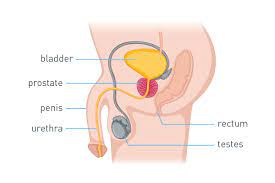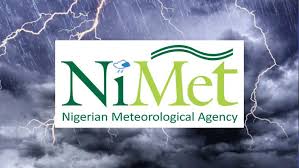
How prostate cancer stole my father, uncle, two brothers – 70 year-old survivor
When Captain Ayinde Yahya (retd) lost his voice in 2019 after taking part in a rigorous presidential election campaign with his kinsmen in Ilorin, Kwara State, little did he know that it was prostate cancer that was stealthy, sinking its fangs into his body.
the life-threatening disease was not new to the retired army officer, who had lost his father, uncle, and two of his brothers to the killer disease.
The soft-spoken father of 10, told our correspondent that what he found strange about his ordeal was that he did not experience classical symptoms of the disease, such as difficulty in urinating and back pain, which were what his late loved ones painfully endured before succumbing to the degenerative disease.
Instead, Capt. Yahya battled with excessive fatigue and loss of speech for over eight weeks, within which time people around him struggled to hear the inaudible words he uttered.
House sold to upset treatment
The grandfather, who sold his house in Ikorodu area of Lagos State to pay for his treatment, said it was tough surviving the ailment after it was diagnosed at an advanced stage.
He recounted, “When I realised that my condition was not getting any better, I told a doctor during one of my visits to the clinic that I have been unable to carry out my Prostate-Specific Antigen test in the last three years.
“So, he referred me to an urologist. The urologist gave me a letter to go carry out the PSA test. The result showed that it was 150, instead of 4.5. That meant I was already dead. I was a living corpse.”
The septuagenarian said he could have escaped the invasion of the ravaging disease and its huge financial burden if he had continued with his PSA screening.
The retired Army officer told PUNCH Health that he was, however, lucky to have survived the deadly disease by selling his house to pay for treatments and drugs.
Narrow escape
The Kwara State indigene recalled that from the age of 50, he started carrying out prostate cancer tests every two years.
“I was living in my own house in Ikorodu, Lagos, before my prostate cancer journey forced me to relocate to Kwara State, after selling the property to access treatment.
“I started carrying the prostate cancer screening test also known as the Prostate-Specific Antigen test at Ikorodu General Hospital. But then, each time I go for the PSA test, the result will return negative. So, after carrying out the test for 10 years and the result kept coming back negative, I stopped.
” I felt the test was a waste of time and money. But I was wrong. The three-year period that I refused to go for the PSA test was when prostate cancer struck me. I was almost gone because I was diagnosed at an advanced stage of the disease.”
Prostate-Specific Antigen Test explained
Prostate-specific antigen
The Prostate-Specific Antigen test popularly known as the PSA test, according to an online news portal, Mayo Clinic, is a blood test used primarily to screen for prostate cancer.
It explained that the test measures the amount of prostate-specific antigen in the blood.
“PSA is a protein produced by both cancerous and noncancerous tissue in the prostate- a small gland that sits below the bladder in males”, Mayo Clinic stated.
According to the Prostate Cancer Foundation, the PSA test is the leading method of screening for prostate cancer.
Experts say PSA screening can help detect the disease at an early stage when treatment may be more effective and potentially have fewer side effects.
Despite the availability and affordability of the PSA test, physicians say most men in Nigeria die from prostate cancer due to low awareness about the disease.
Although Nigeria lacks data on the number of its populace living with prostate cancer, findings by PUNCH Healthwise showed that prostate cancer is the most commonly diagnosed cancer among men, but screening for the disease is not yet a common practice in the country.
Yahya who chronicled how his prostate cancer journey, which started in 2018 with a complete loss of his voice, told our correspondent that he initially thought that the challenge he had with his voice was caused by a sore throat, without knowing that it was one of the symptoms of full-blown prostate cancer.
Headache and twisted tongue
Further chronicling his battle with prostate cancer, the retired Army officer said, “In 2018, I woke up from sleep with a severe headache and a twisted tongue. I was still living in Lagos at that time. So, I drove myself to Ikorodu General Hospital, where the doctor attended to me and gave me some drugs.
” After a month, I became okay. A year after, in 2019, I got involved in a presidential campaign in my state that was so tedious I had to shout most of the time. So, I lost my voice.
“Initially, I thought I had a sore throat. I started taking bitter kola with honey and there was no respite. After some time, it got worse that nobody could hear me anymore, no matter how close they were to me.
“I lost my voice completely. One day, while still battling to recover my voice, I started feeling very weak and couldn’t walk. I was rushed to the University of Ilorin Teaching Hospital, Kwara State.”
Continuing, he said, “After I was given some treatments at the emergency department, I was referred to the neurology department, where I was administered some drugs and felt better. My voice became normal. But around July of that same year, I had a relapse. I started stooling uncontrollably and became so emaciated.”
The retired Army officer who is a grandfather of 11 grandchildren, told PUNCH Healthwise that prostate cancer almost paralysed him, as he could no longer carry out his routine chores without the support of his children.
” My daughter and sons were the ones taking turns to bathe me. I could not walk or stand. So, I went back to the UITH and my case was moved from the Neurology Department to the Ear Nose and Throat Department.
Doctors unaware it was prostate cancer
“After examining me, the doctors requested for Magnetic Resonance Imaging to be carried out at the Mecure Healthcare Centre, Oshodi, Lagos. When the MRI result came out, it indicated that the problem had to do with the throat and not neurology. A growth was discovered in my throat.
“So after the doctors at the ENT department saw my result and had it analysed, I was taken to the theatre, where they operated on my throat. They took part of the tumour for a test and it was not cancerous.
The Septuagenarian said the doctors told him that since it was not cancer and his voice was still not clear, he should start taking his medications with warm water.
“They assured me that my voice will become normal with time. At this point, the doctors were still not aware that I had prostate cancer and that it was responsible for my ill health”, he added.
Worried that he was not getting better after carrying out the surgery, the septuagenarian, said he decided to help the doctors to do their job by requesting for a prostate cancer screening, having stopped for over three years.
His suspicion was right as his PSA test showed that prostate cancer had invaded his body and was now at an advanced stage.]
“The test confirmed my suspicion,” Capt.Yahya said with a smile on his face.
Prostate cancer leading cause of cancer death in black men
Identifying prostate cancer – Image source: Mesothelioma Center
Experts say prostate cancer is a leading cancer diagnosis and cause of cancer-related deaths among men.
They noted that it is the most commonly diagnosed cancer among Nigerian men.
A Professor of Pathology, Oncology and Urology at the Johns Hopkins School of Medicine, Clayton Yates told PUNCH Healthwise in an exclusive interview that based on available statistics, 60 per cent of black men are more at risk of prostate cancer than white men.
“We have done research that showed that there are possible genetic hereditary genes that are in people of African descent that predispose them to prostate cancer.
“So, before you even get diagnosed, you have to live a healthy lifestyle, eat lots of fruits and vegetables. Eight out of 10 African men will have prostate cancer, while it is between four and five out of 10 for white men. For black men, they must start prostate cancer screening from the age of 40 years”, the oncologist said.
Further narrating his ordeal, Capt. Yahya said when he realised that, “Several other tests revealed that it was an advanced prostate cancer.
“I was asked to carry out an MRI and the UITH, but the machine was not available there. So, I went to Ladoke Akintola University Teaching Hospital, Ogbomoso, Oyo State and it was done for N120,000.
“The result further revealed that the prostate cancer was at an advanced stage, but had not affected major organs of my body, though it had metastasized.
“When I went back to the consultant that requested for the MRI test, he examined me and prescribed three treatment options. They were either I get castrated, have my testicles removed, or I will be on a monthly injection every three months.
Why I refused castration
The grandfather told our correspondent that he refused to be castrated due to the complications involved.
He said, “The doctor advised me to go for the first option, which was to have my testicles removed. He explained that prostate cancer feeds on the testes and that if I should remove them, the





